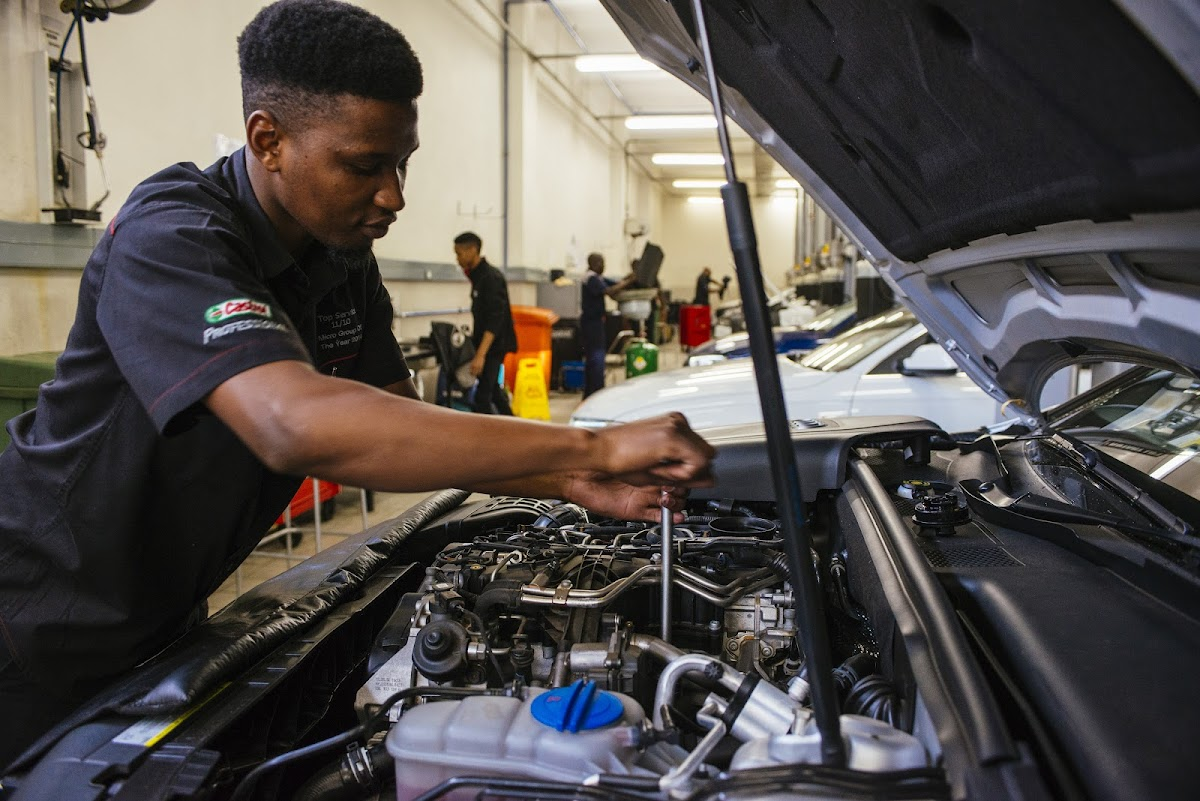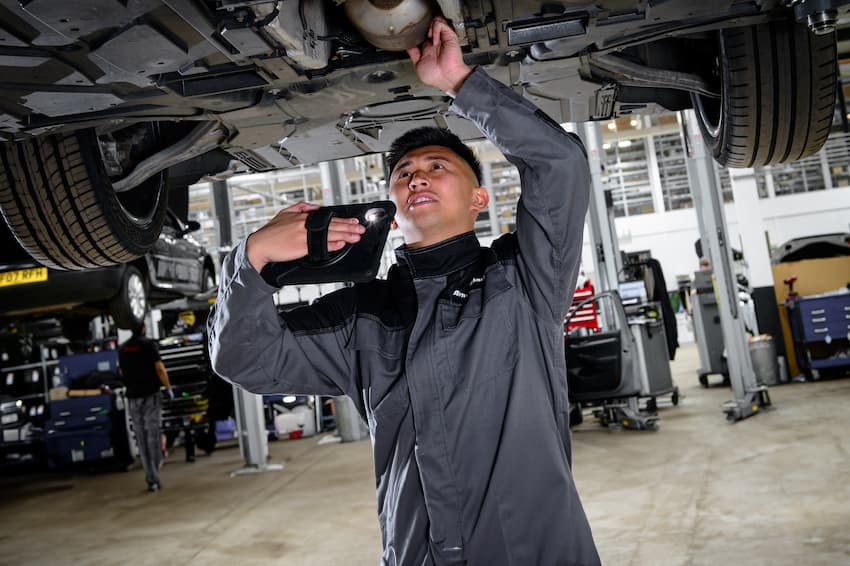


Explore the best car service courses available for teens in Canada and kickstart your automotive journey.
Hey everyone! So like, I've been thinking about this a lot lately because my older brother just finished his automotive program at George Brown College in Toronto, and man, the opportunities are crazy good right now. Canada's automotive industry is going through some major changes with all the electric vehicle stuff happening, and honestly, it's probably the best time ever to get into car service training.
The thing is, most people don't realize how technical modern cars have become. Like, my dad's been working on cars for twenty years, but even he had to go back to school to learn about hybrid systems and computer diagnostics. That's why starting with proper automotive courses when you're young is so important - you get to learn both the traditional mechanical stuff and all the new technology from the beginning.
What really got me excited about this whole field was visiting my brother's school and seeing the equipment they use. We're talking about the same diagnostic computers and tools that dealerships have, not some old textbook stuff. The instructors are people who actually worked in the industry, so they know what employers are looking for. Plus, with Canada investing billions in electric vehicle manufacturing, there's going to be tons of jobs for people who understand both traditional and electric vehicle systems.
In this article, I'm going to break down everything you need to know about automotive courses in Canada - from the best schools to the different types of programs, what it actually costs, and how to figure out if this career path is right for you. Trust me, after doing all this research, I'm seriously considering this for my own future.
Canada has a pretty solid system for automotive education, but it's not the same everywhere. Each province has its own regulations and certification requirements, which can be confusing if you're trying to figure out where to study. The good news is that most provinces recognize each other's certifications, so you're not locked into staying in one place forever.
There are basically three types of schools offering automotive programs: community colleges, technical institutes, and private career colleges. Community colleges like Seneca in Ontario or SAIT in Alberta are usually your best bet because they have strong industry connections and their programs are recognized by employers. Technical institutes focus more on hands-on training, while private colleges can be faster but more expensive.
Ontario has the Red River system where you need to complete specific levels of training and work experience to become a licensed technician. Alberta uses a different apprenticeship model where you can start working while taking courses part-time. British Columbia has its own certification through ITA (Industry Training Authority), and Quebec has the DEP system which is completely in French.
What's cool is that most provinces are moving toward standardized training because of how much technology is changing in the automotive industry. The federal government has been pushing for this through the Red River College system, which means your credentials will be more portable between provinces in the future.
After talking to my brother and doing research online, I've found that some schools definitely stand out from the others. The best programs combine classroom theory with serious hands-on experience, have up-to-date equipment, and maintain strong relationships with local employers for job placement.
George Brown College in Toronto has one of the most comprehensive automotive programs in Canada. They have partnerships with major manufacturers like Ford, GM, and Toyota, which means students get training on actual current-model vehicles. The program includes everything from basic engine repair to advanced diagnostics and hybrid vehicle systems. What's really impressive is their job placement rate - over 85% of graduates find employment within six months.
Centennial College also in Toronto offers a unique advantage with their co-op program. Students spend alternate semesters in school and working at actual dealerships or independent shops. This means you graduate with real work experience, not just classroom knowledge. Seneca College has a newer program that focuses heavily on electric and hybrid vehicle technology, which is becoming super important.
SAIT (Southern Alberta Institute of Technology) in Calgary is probably the most respected automotive school in Western Canada. They have incredible facilities including a full vehicle dynamics lab and partnerships with companies like Canadian Tire and Mr. Lube for internships. Their program is designed to prepare students for both independent shop work and dealership service departments.
British Columbia Institute of Technology (BCIT) in Vancouver offers one of the most technically advanced programs in the country. They were among the first schools to integrate electric vehicle training into their curriculum, and they have specialized labs for hybrid systems, advanced driver assistance systems (ADAS), and even autonomous vehicle technology.
Not all automotive programs are the same, and choosing the right type depends on what kind of career you want and how much time you can commit to school. The main options are certificate programs, diploma programs, and apprenticeship training. Each has different advantages depending on your situation.
These are the fastest way to get into the workforce and are perfect if you want to start earning money quickly. Certificate programs focus on essential skills like basic engine repair, brake systems, and electrical troubleshooting. They're also good if you're not sure about committing to a longer program. The downside is that you might need additional training later to work on more complex systems or advance to supervisory positions.
Diploma programs give you the most comprehensive education and prepare you for technician-level positions right after graduation. These programs cover everything from basic mechanical systems to advanced computer diagnostics, hybrid and electric vehicle technology, and even some business skills for if you want to open your own shop someday.
What I like about diploma programs is that they often include specialization tracks in your final year. You can focus on areas like performance tuning, diesel technology, or electric vehicle systems depending on what interests you most. The job prospects are also better - diploma graduates typically start at higher wages and advance faster than certificate holders.
Let's be honest about the money side of things because that's what everyone really wants to know. Automotive programs aren't cheap, but they're also not as expensive as university, and the job prospects are actually better in many cases. The key is understanding what you're paying for and what kind of return you can expect.
Certificate programs typically cost between $8,000 and $15,000 total, including tuition, books, and tools. Diploma programs range from $18,000 to $35,000 for the full program. Private colleges are usually more expensive than public institutions, but they might offer more flexible scheduling or smaller class sizes.
Don't forget about additional costs like safety equipment, specialized tools, and certification exam fees. Most programs require you to buy your own basic tool set, which can cost $2,000 to $4,000. However, many employers will help pay for additional tools once you're hired, and having your own tools is essential for career advancement.
Entry-level automotive technicians in Canada typically start between $35,000 and $45,000 annually, depending on location and specialization. With experience and additional certifications, salaries can reach $65,000 to $80,000. Master technicians at dealerships or those who specialize in high-end vehicles can earn over $100,000.
What's really encouraging is the job security. According to Statistics Canada, automotive service technician is listed as a high-demand occupation with excellent long-term prospects. The shift toward electric vehicles is creating even more opportunities for technicians with specialized training in these systems.
Getting into automotive programs isn't as complicated as university applications, but there are still important steps to follow. Most schools have rolling admissions, which means you can apply throughout the year, but popular programs fill up quickly so it's better to apply early.
The basic requirements are usually a high school diploma or equivalent, with specific math and science courses depending on the program level. For certificate programs, you typically need Grade 10 math and science. Diploma programs usually require Grade 12 math and physics or chemistry. Some schools offer upgrading courses if you don't meet the prerequisites.
Even though automotive programs aren't super competitive, showing genuine interest can help your application. If you've worked on cars as a hobby, volunteered at automotive events, or have any related work experience (even just helping at a gas station), make sure to mention it. Schools want students who are likely to complete the program and find employment afterward.
Visit the schools you're interested in and attend information sessions if possible. This shows you're serious about the program and gives you a chance to ask questions about equipment, job placement rates, and what current students think about their experience. Some schools offer summer camps or weekend workshops that let you try automotive work before committing to a full program.
The automotive industry is changing faster now than it has in decades, and that's creating amazing opportunities for people just starting their careers. Electric vehicles, autonomous driving technology, and advanced safety systems are completely reshaping what it means to be an automotive technician.
Canada has committed to banning gas-powered vehicle sales by 2035, which means every car on the road will eventually be electric or hybrid. This creates a huge opportunity for technicians who understand these systems. Right now, there's a shortage of qualified EV technicians, so getting training in this area almost guarantees job security and higher wages.
The automotive courses available today are preparing students for this future by including electric vehicle systems, advanced diagnostics, and even some programming skills. Modern cars are basically computers on wheels, so technicians need to understand both mechanical and software systems. This makes the work more interesting and better paying than traditional automotive repair.
If you're thinking about an automotive career, now is definitely the time to start. The industry needs young people who can bridge the gap between traditional mechanical skills and new technology. With the right training and attitude, you could be working on the cutting edge of transportation technology while building a stable, well-paying career. The opportunities are there - you just need to take the first step and find the right program for your goals.
json
Discover the essential tips and tricks for keeping your car running smoothly, from a fellow Canadian...
Read More
Become a car maintenance pro with these practical insights and advice for young drivers in Canada.
Read More
Learn how to tackle common car issues and save money with this practical guide for young Canadians.
Read More